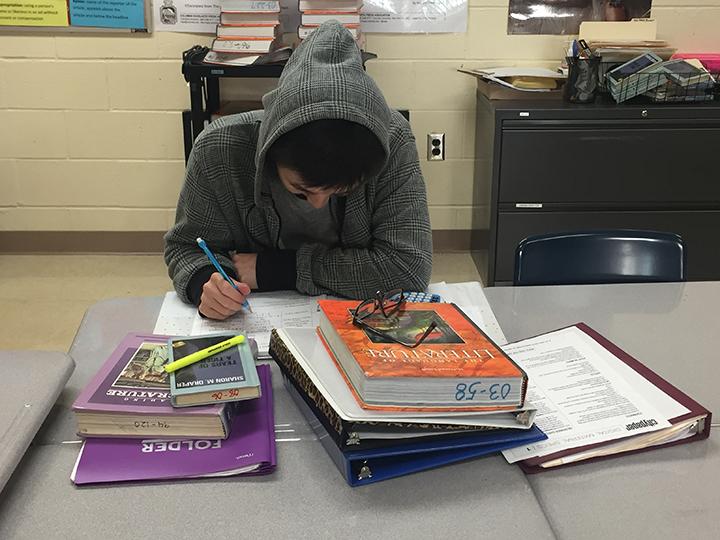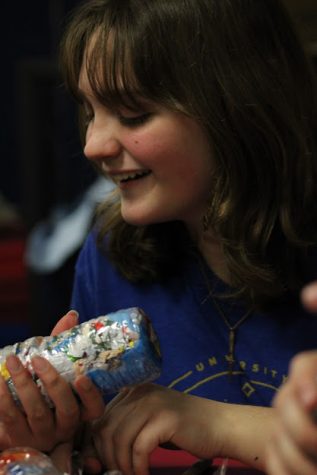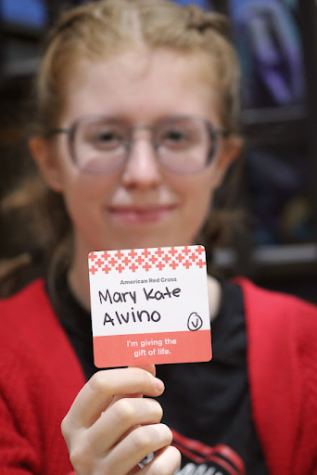Neshaminy students struggle with pressures to cheat
Many students feel the pressure to cheat
February 14, 2018
Cheating is ”fraud, deceit, or dishonesty in an academic assignment” as defined by the University of California, Berkeley. The dishonest deed is nothing new to society today as some Neshaminy teachers have even admitted to cheating.
“There was a time in college when two of my fraternity brothers went dumpster diving and stole the final exam for the rest of us in the fraternity who were taking that course,” math teacher Michael Palkovics said.
It’s not surprising for students to find themselves in that anxious and panicky situation when they’re trying to finish an English paper the night before it is due, or while they’re staring blankly at a Physics test in front of them. Stuck in that dilemma, students often turn to cheating—a serious problem affecting students across the world. According to Josephson Institute Center for Youth Ethics, 59% of 43,000 high schoolers surveyed admitted to cheating on a test and one out of three high schoolers confessed to utilizing the Internet to plagiarize their assignments.
“I’ve noticed my classmates going to the bathroom to use their phones to look up answers on the test and to send test answers to other classes. Others would have their phones out on their desk while taking a test or have the review sheet sticking out of their backpack next to them to look at the answers,” an anonymous Neshaminy senior said.
Cheating is frequently looked down upon due to its dishonest and unjust characteristics to honest students who do work hard, according to Professor Michael Bishop from the California State University San Marcos. Pursuing the act is often negatively viewed because it showcases that a student is making no effort to achieve true education. Despite its notorious reputation, internal and external pressures prompt students to still carry out cheating.
Many students cheat due to an internal pressure to obtain what is considered an acceptable or good grade in today’s society as claimed by Academia.edu. Rather than focusing on the true purpose of learning and the actual knowledge gained, many students tend to fear the idea of failing and to view grades as a way to determine their success. Their strong desire to obtain a good grade renders them unconfident and unsure of their own abilities, causing them to desperately turn to unethical means In addition to an internal pressure to maintain good grades, students are often pressured externally by their competitive school environment, their families, and their peers. As stated by the HuffPost’s article,“Cheating In College: Where It Happens, Why Students Do It and How to Stop It,” with so much pressure to stand out as a smart and capable student against others, a student could lose his or her integrity and succumb to the idea of cheating.
Families often put an emphasis on good grades and push their children to meet their expectations. Thus, students feel stressed and pressured to turn to other means like cheating in order to achieve the expected good grade and high rank of their class than what is actually the student’s possible potential. ` Including the external pressure from the school environment and families, many also feel burdened to cheat because of their peers according to Academia.edu. The social pressure of maintaining friendships and to have good grades like their peers can cause them to depend on one another academically. Many fear to be excluded by a friend when he or she refuses to give the answers.
“From students trying to look off someone else’s paper to having cheat sheets to using their cell phones, I have caught many students cheating over the years,” said Neshaminy science teacher, Sheila Royds.
With technology by our side all the time, the dishonest behavior has become easier. By quickly taking pictures of test questions and answers, people can easily send them to their friends. In addition, the Internet allows students to simply search up the prompt for their paper or the questions from their test.
“I have seen students try to cheat in a variety of ways from plagiarizing or copying an assignment or an essay to writing cheat notes and shoving them up their sleeves. Some students are so obvious such as turning in an essay with another student’s name in the heading or using vocabulary well beyond their academic level. Others have been very sneaky such as writing information on the inside label of a water bottle and having the bottle on the desk during the test,” said Neshaminy English teacher, Stacy Marozsan.
Not only is cheating seen as an unjust act, but the consequences that follow are severe. One could suffer from a zero on an assignment or a test, a failing grade in an entire course, a bad reputation, loss of privileges such as participating in school activities, suspension, loss of scholarships, loss of chances to get an internship or job, and expulsion from one’s school. If one is not knowledgeable in one’s job because one cheated throughout their education, other people’s life could also be affected severely.
“My favorite “catch” was the kid who wrote their answers on the back of a Snapple label and kept picking up the drink during the class because he wrote too small; I thanked him for teaching me a new cheating technique and gave him a zero,” English teacher Suzi Drake said.
According to lawyers.com, three-fourths of universities look at one’s high school disciplinary information for one’s admissions decision. If there is plagiarism in one’s college essays or cheating in one’s record, colleges could easily reject the person.
“One time, my friend didn’t have time to finish a project by its due date. He decided to copy his friend’s project and turned it in, hoping no one would notice. However, the teacher realized how similar his project was to his friend and gave him a zero. He ended up getting kicked out of the National Honor Society as a result,” an anonymous source said.
From an internal fear of failing to meeting parent’s expectations to our technology oriented world, there are so many pressures that prompt students to take the dishonest shortcut to success. As cheating continues to remain a prominent problem in many schools today, websites such as “Turnitin” are used to catch those who plagiarize other student’s papers. With such severe consequences on a person’s integrity and future, cheating is not an act that is easily overlooked.











